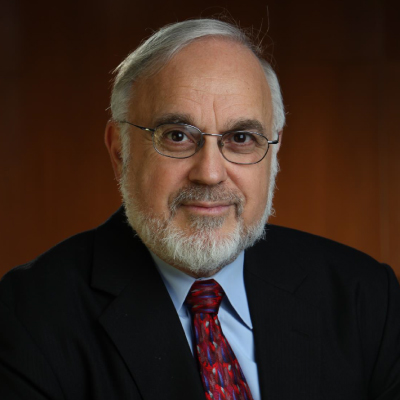OPINION – Trust but Verify: Syria’s New President Courts Peace After Sanctions Lifted
US and Israel weigh the risks of engaging with Syria’s former jihadist leader
Last month, my fellow human rights activist the Rev. Johnnie Moore and I met across from UN headquarters in New York with Syria’s Foreign Minister Asaad al-Shaibani. He had traveled to the United States to press for the removal of sweeping economic sanctions on his country—some dating back as far as 2004.
To say the least, it was a tough sell, given the Assad regime’s brutal legacy and the fact that Syria’s president since January 2025, Ahmed al-Sharaa, is a former fighter with al-Qaida in Iraq who later founded the Nusra Front. Unsurprisingly, most Syria experts and advisers to the US president have urged that the sanctions stay in place.
The Rev. Moore’s first questions to the foreign minister are still the right ones: How do we know we can trust you? How do we know you can deliver?
President al-Sharaa encouraged us to come see Syria for ourselves, and we accepted, visiting Damascus from June 9 to June 11.
By the time we arrived, US President Donald Trump had stunned diplomats and analysts alike by announcing that he would revoke the sanctions. Our 40-minute drive from the airport into Damascus made it clear that the country is in dire need of major investment—and that as long as the sanctions remained, rebuilding was next to impossible.
This holiday season, give to:
Truth and understanding
The Media Line's intrepid correspondents are in Israel, Gaza, Lebanon, Syria and Pakistan providing first-person reporting.
They all said they cover it.
We see it.
We report with just one agenda: the truth.


Two meetings stood out: a two-hour conversation with al-Sharaa at the Presidential Palace, and a gathering with Christian leaders from across Syria and Lebanon who came to share their hopes and fears. We also visited the Christian quarter, where Damascus’ last synagogue stands. Armed soldiers with loaded AK-47s stood guard at major intersections.
In our late-night meeting, al-Sharaa laid out his plan for a unified Syria with secure borders and a single national army. He assured us that all citizens—regardless of their ethnic or religious identity—would have their rights protected. He spoke openly about the enormous task of rebuilding after decades of Assad rule, civil war, and sectarian violence. His government had been in power for only six months, and many Syrians were still waiting to see whether their hopes for peace and stability would materialize. His greatest challenges, he admitted, lie inside the country.
Even so, al-Sharaa spent nearly 40 minutes discussing Israel. While he listed grievances, he said Syria and Israel no longer needed to be enemies. He stopped short of endorsing Syria’s entry into the Abraham Accords but spoke about seeking to “deconflict” with Israel and cited the 1974 armistice agreement as a potential foundation for talks.
Now, President Trump has signed the executive order formally ending two decades of escalating sanctions.
Yet the Rev. Moore’s original question still hangs in the air: Can this government be trusted? The US Congress is preparing hearings, with many lawmakers warning that any lifting of sanctions should be contingent on Syria’s new leadership keeping its promises. No one wants a repeat of the Afghanistan debacle, where, weeks after US sanctions were lifted, the Taliban shut down girls’ schools despite promising to let them operate.
Christian leaders in Syria worry that officials may try to impose Islamist curricula in their schools. They fear such moves could threaten their community’s future and trigger an exodus of young Christians. Continued engagement from the Trump administration, the US Congress, and Western donor nations will be critical to making sure Syria’s promises become reality.
Our own short visit made clear that al-Sharaa does not yet control the entire country. We had hoped to meet with members of the embattled Druze minority, but the government couldn’t guarantee safe passage between Damascus and Druze areas. That visit never happened.
Israel now faces a strategic choice in the post-sanctions landscape: take cautious, gradual steps toward reducing tensions—or move swiftly toward full diplomatic recognition between two longtime foes. Israeli Prime Minister Benjamin Netanyahu is expected in Washington soon. Talks between Jerusalem and Damascus have already started. A rapid Abraham Accords-style breakthrough will only be possible if one person—President Trump—brings Netanyahu and al-Sharaa to Camp David or the Oval Office to seal the deal.
Either way, a quick word of caution in Hebrew comes to mind: kabdeihu v’hashdeihu—“trust but verify.”

